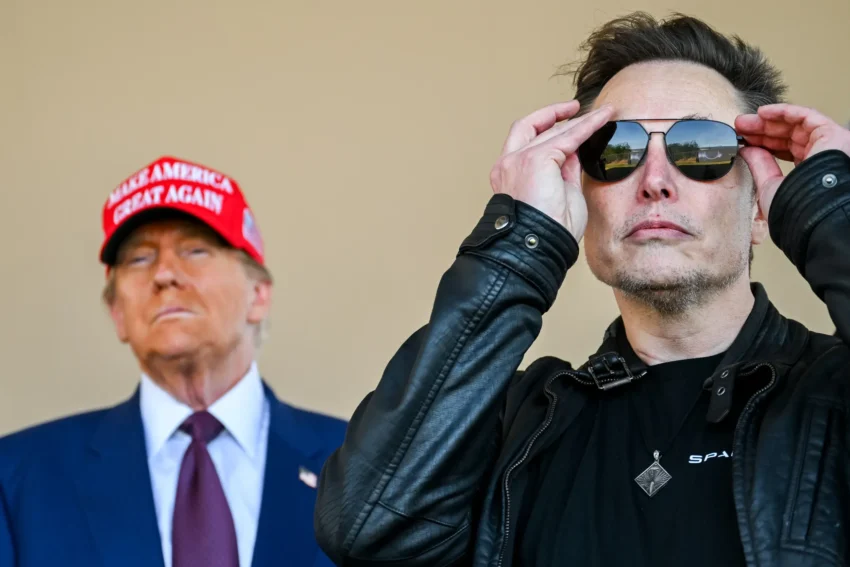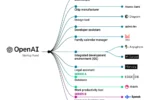Elon Musk’s government operations have sparked significant controversy as his associates gain control over several key federal agencies, including the Treasury Department and the Office of Personnel Management. Reports suggest that Musk’s Department of Government Efficiency (DOGE) is clashing with career officials over sensitive payment systems that manage the distribution of trillions in federal funds. The recent upheaval within the Treasury Department, which has seen high-ranking officials depart amid disputes, raises serious questions about government efficiency and accountability. With the Musk DOGE initiative, his team has been accused of locking out federal employees from critical data systems, potentially jeopardizing the security of millions of federal employees’ personal data. As these developments unfold, they highlight a dramatic shift in the dynamics of federal operations, reminiscent of the chaotic restructuring witnessed during Musk’s takeover of Twitter.
The recent advances made by Elon Musk’s team within federal agencies represent a bold and controversial maneuver into government oversight and operations. His initiative, often referred to as DOGE, aims to enhance government efficiency but has raised alarms about the implications for transparency and employee rights. Tensions have escalated particularly in the Treasury Department, where clashes over access to crucial financial systems have led to significant personnel changes. With the involvement of the U.S. Digital Service now rebranded under Musk’s influence, the restructuring of governmental operations appears to be a central theme in this evolving narrative. As the federal landscape adjusts to these unprecedented changes, the implications for public service and policy implementation are profound, potentially reshaping how government interacts with technology and data management.
Elon Musk’s Influence on Government Operations
The recent reports about Elon Musk’s influence over various government agencies, including the Treasury Department and the General Services Administration, highlight a significant shift in how federal operations are conducted. Musk’s team, particularly those associated with the Department of Government Efficiency (DOGE), have been accused of taking control of sensitive systems and disrupting the established order. This move raises questions about government efficiency and operational integrity, especially as it has led to the departure of career officials who have served in their positions for years.
The implications of Musk’s involvement extend beyond mere operational control; they touch upon the core of government functionality and accountability. By seeking access to critical financial systems that manage trillions of dollars, DOGE aims to reshape how federal funds are distributed, potentially leading to significant changes in programs like Social Security and Medicare. As the landscape of federal operations evolves, the balance between innovation and governmental responsibility remains a crucial topic for discussion.
Impact of DOGE on Federal Employees
Reports indicate that Elon Musk’s DOGE has not only influenced high-level operations but has also created a precarious environment for federal employees. With Musk’s aides allegedly locking career civil servants out of computer systems that contain sensitive data, the trust and transparency within federal operations are being challenged. Such actions can lead to a breakdown in communication and efficiency, particularly during critical periods when accurate federal employees data is essential for decision-making.
The atmosphere created by DOGE’s intervention raises concerns about employee morale and job security. An email offering federal employees the option to resign mirrors the chaotic environment Musk fostered during his acquisition of Twitter, suggesting a pattern of disruptive management practices. As federal employees navigate this uncertain landscape, the potential for innovation through technology must be balanced against the need for stability and ethical governance.
Government Efficiency and the Role of Technology
The ongoing efforts by Musk’s Department of Government Efficiency (DOGE) to implement technology-driven solutions within federal agencies aim to enhance government efficiency. However, the methods employed raise ethical concerns about access and control over sensitive governmental operations. The balance between leveraging technology for efficiency and ensuring that government remains accountable to its citizens is a delicate one.
As agencies like the U.S. Digital Service are rebranded and repurposed under Musk’s leadership, the focus shifts toward integrating modern technology into federal operations. This transition could lead to significant advancements in how services are delivered to the public, but it also prompts questions about oversight and the role of federal employees in this new landscape. The challenge will be to ensure that these technological innovations do not compromise the integrity of government operations.
Controversial Access to Sensitive Payment Systems
The reported clash between Musk’s aides and the Treasury Department regarding access to sensitive payment systems raises serious concerns about the management of federal funds. With more than $6 trillion allocated to various programs, the need for stringent oversight becomes even more critical. The potential mishandling of such vast resources could have repercussions that affect millions of Americans who rely on essential government services.
As Musk’s team seeks to control these systems, the implications for government efficiency and accountability are profound. The questions surrounding the Treasury Department’s ability to maintain secure and effective management of these funds highlight the need for a clear separation of powers, especially in a system designed to function independently of external influences. Ensuring that agencies operate without interference is vital for maintaining public trust.
The Future of the U.S. Digital Service Under Musk
Under Elon Musk’s influence, the U.S. Digital Service is undergoing a significant transformation that could redefine its role within the federal government. Originally intended as a service to improve technology and user experience in federal agencies, the rebranding to ‘U.S. DOGE service’ suggests a shift toward a more centralized approach that aligns with Musk’s vision for efficiency and innovation.
However, this transformation comes with its own set of challenges. As the U.S. Digital Service adapts to its new identity, the potential for innovation must be coupled with a commitment to ethical governance and transparency. The future of this agency will depend on how well it can integrate new technologies while ensuring that federal employees play an integral role in safeguarding democratic processes and public trust.
Musk’s Approach to Disrupting Established Norms
Elon Musk’s approach to disrupting established norms within the federal government mirrors his tactics in the corporate world, where rapid changes are often met with resistance. His involvement in agencies like the Office of Personnel Management and the Treasury Department is seen as an unprecedented power grab, challenging the traditional bureaucratic structure that has governed federal operations for decades.
This disruption raises questions about the long-term implications for government efficiency and operational integrity. While innovation is crucial, the manner in which Musk and his aides are implementing changes can create instability, leading to a workforce that is unsure of its future. Balancing the need for efficiency with respect for established procedures will be essential in determining the success of these initiatives.
Ethical Considerations of Musk’s Government Operations
As Elon Musk’s team implements changes across various government agencies, ethical considerations come to the forefront. The manipulation of sensitive systems and the treatment of career civil servants raise critical questions about respect for established norms and the ethical implications of such power dynamics. The move towards a more efficiency-driven government, led by Musk’s DOGE, must not overlook the importance of ethical governance.
Navigating these ethical waters requires a commitment to transparency and accountability. As Musk’s influence grows, it will be essential for stakeholders to advocate for practices that respect the rights of federal employees while also pushing for innovation. The intersection of technology and ethics in government operations will be a key area to watch as these changes unfold.
The Role of Federal Employees in a Changing Landscape
Federal employees are at the heart of the ongoing transformations within government agencies influenced by Elon Musk. As DOGE seeks to implement a new operational framework, the role of these employees becomes increasingly complex. They must adapt to new technologies and methods while grappling with the uncertainty of their positions and the security of their data.
The support and engagement of federal employees are crucial for the success of any new initiatives. Their insights and experiences can provide valuable perspectives on the feasibility and practicality of proposed changes. As Musk’s team works to reshape the federal landscape, it will be essential to foster an environment where federal employees feel valued and empowered to contribute to the evolution of government efficiency.
Challenges of Balancing Innovation and Accountability
The push for innovation within the federal government, fueled by Elon Musk’s initiatives, comes with significant challenges. While the Department of Government Efficiency (DOGE) aims to streamline operations and improve service delivery, the risk of compromising accountability is ever-present. The balance between adopting new technologies and maintaining robust oversight mechanisms is crucial for ensuring that government operations remain effective and transparent.
As agencies navigate this new terrain, it will be vital to establish clear guidelines that safeguard against potential abuses of power. The integration of technology must be accompanied by stringent ethical standards and oversight to ensure that the interests of the public are prioritized. The future of federal operations will depend on how well these competing demands are managed.
Frequently Asked Questions
What are the implications of Elon Musk’s government operations on federal agencies like the Treasury Department?
Elon Musk’s government operations, particularly through the Department of Government Efficiency (DOGE), have significant implications for federal agencies like the Treasury Department. Reports indicate that Musk’s team is seeking access to sensitive payment systems that manage over $6 trillion in federal funds. This has raised concerns regarding the oversight and distribution of critical programs such as Social Security and Medicare, potentially disrupting established processes within these agencies.
How is Elon Musk’s DOGE influencing government efficiency and operations?
Elon Musk’s Department of Government Efficiency (DOGE) aims to enhance government operations by streamlining processes and potentially cutting costs. However, reports suggest that Musk’s influence has led to unprecedented changes, including locking out career civil servants from vital computer systems, which could hinder operational efficiency and access to federal employees’ data.
What is the relationship between Elon Musk’s DOGE and the U.S. Digital Service?
Initially established as an advisory body, the U.S. Digital Service was rebranded as the U.S. DOGE service under Trump. This shift implies that Elon Musk’s operations are now directly integrated into government functions. The transition aims at improving government efficiency but has sparked controversy over the extent of Musk’s control and the implications for civil service operations.
Why are officials from Musk’s DOGE clashing with career officials in government agencies?
Officials from Musk’s DOGE have reportedly clashed with career officials over access to sensitive payment systems in the Treasury Department. This conflict highlights tensions between Musk’s team, which is pushing for operational changes, and established civil servants who are concerned about the security and integrity of federal operations.
What role does the General Services Administration play in Elon Musk’s government operations?
The General Services Administration (GSA) is crucial to Elon Musk’s government operations as it oversees federal offices and technology. Reports indicate that Musk’s aides have taken control of the GSA, which allows them to influence tech operations within the federal government, raising concerns about the impact on federal employees and operational protocols.
How are federal employees reacting to Elon Musk’s operations within the government?
Federal employees have expressed concern over Musk’s operations, particularly following a government-wide email offering the option to resign. This move, along with reports of interrogation and code reviews by Musk’s aides, has created an atmosphere of uncertainty and apprehension among federal employees regarding job security and workplace dynamics.
What are the potential legal ramifications of Elon Musk’s actions within government operations?
The legal ramifications of Elon Musk’s actions within government operations could be significant, especially concerning access to sensitive systems and the potential violation of federal regulations. Experts argue that the chaotic approach to funding and operations could lead to challenges regarding the Constitution and federal law compliance.
How does Elon Musk’s takeover of government operations compare to his acquisition of Twitter?
Elon Musk’s takeover of government operations mirrors the chaotic environment that followed his acquisition of Twitter. Both instances showcase his disruptive management style and the resulting upheaval within established systems, raising questions about governance, oversight, and the long-term implications for both platforms.
What does the future hold for the Department of Government Efficiency (DOGE) under Elon Musk’s influence?
The future of the Department of Government Efficiency (DOGE) under Elon Musk’s influence remains uncertain. While the aim is to improve efficiency and reduce costs, the controversial tactics employed by Musk’s team may lead to pushback from career officials and could complicate the mission of DOGE, potentially resulting in legal challenges and operational disruptions.
| Key Points | Details |
|---|---|
| Control of Government Agencies | Elon Musk’s associates are reportedly taking charge of internal operations in agencies like the Office of Personnel Management, the Treasury Department, and the General Services Administration. |
| Conflict at Treasury Department | The highest-ranking career official at the Treasury has resigned after conflicts with Musk’s Department of Government Efficiency (DOGE) regarding access to sensitive payment systems. |
| Access to Federal Funds | DOGE has sought access to systems managing over $6 trillion in federal program distributions, raising concerns about potential unconstitutional actions by the Trump administration. |
| Lockout of Civil Servants | Musk’s aides have reportedly locked career civil servants out of systems containing personal data of millions of federal employees. |
| Interrogation of Tech Workers | Musk’s team is reportedly interrogating tech workers and conducting code reviews throughout the government. |
| Government-wide Email | Musk’s team has sent an email offering federal employees the option to resign, indicating a significant shift in government operations. |
| History of DOGE | Initially meant to be an advisory body for spending cuts, DOGE has shifted to operational control under Musk’s influence. |
| Presence in the White House | Musk reportedly has an office in the West Wing and is allegedly sleeping at the DOGE office. |
Summary
Elon Musk’s government operations represent a significant and controversial shift in the management of federal agencies. His team’s takeover of internal functions in various departments, particularly the Treasury and the General Services Administration, has raised alarms about security, access to sensitive data, and the constitutional implications of their actions. The approach taken by Musk and his associates mirrors the tumultuous changes observed during his acquisition of Twitter, suggesting a broader strategy of disruption and consolidation within the federal system. As these developments unfold, they could have lasting implications for the structure and functioning of government operations in the United States.






